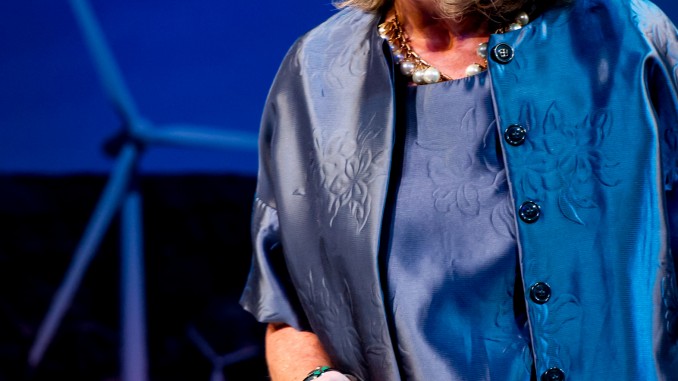
Other American Plays [by James Wenley]
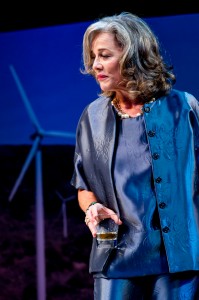
The desert looking back at us is not quite the one from the popular imagination: wind turbines populate the otherwise arid landscape. Is this a symbol of progressivism and human achievement, or a blot on the natural expanse? This dessert is Palm Springs, and the centrepiece of Rachael Walker’s eye-catching stage design is a massive white shag pile rug that covers the stage and rolls down the front step towards the audience; an opulence that tries to keep the Wyeth family’s feet clean and out of the dirt and sand. The stage is otherwise a barren blackness beyond the fractured screen prints of the desert scenography, and it all has the effect of marooning the characters in their own space. I remain struck by the visual incongruity of the wind machines: stuck, unmoving. So too the Wyeth family at the centre of this play, stuck in the past, unable to move forward. So too the American nation as allegorised in this play: all too stuck.
The American political landscape of 2004 bubbles under the surface of the Wyeth family’s Christmas reunion in Palm Springs. The other desert cities of the title references the cities that lie beyond Palm Springs, but the otherness more urgently refers to the new orientalism: Iraq and the Middle East. When small talk turns to Iraq, it is quickly repressed: “let’s not do this”. There’s an atmosphere of fake conviviality, troubled by some seemingly intractable binaries: East Coast/West Coast, Left Wing/Right Wing. Polly (Sarah Peirse) and Lyman Wyeth (Peter Hayden) are Republican elite, showbiz stars (she a script-writer, he an actor cum Reagan diplomat), exiles from Democrat Hollywood. Brooke (Hera Dunleavy) is the black sheep of the family, a novelist and firm liberal who has returned home after a six year absence. She is overtly visually othered by debut costumer designer Lucy Jane Senior with her black trouser-shirt combo against her family’s crisp white holiday garments. Her brother, Trip (Adam Gardiner), stands in for the a-political Americans, a reality show producer that churns out entertainment opiate and quietly despairs. Polly’s estranged sister Silda (Elizabeth Hawthorne) is a further potential fire-starter.
The ban on discussing the war hides a deeper trauma – the death of eldest son Henry, implicated in an act of anti-establishment terror during the Vietnam War era. The dramatic match of Other Desert Cities is Brooke’s new book – non-fiction – which exposes some deeply hushed family secrets, and over the course of Christmas Eve, the threat of publication exposes a few more that even Brooke had never conceived. And so the play becomes a battle for the (disputed) honour of the troubled Wyeth family, and by extension, the battle for the soul of a troubled nation.
Auckland Theatre Company have made the explicit link between Jon Robin Baitz’s Other Desert Cities, which comes via the international Pulitzer Prize seal of approval (2012 prize for Drama), and Tracy Lett’s August: Osage County which ATC presented in a standout production of 2010. There are certainly shared links – a mysterious death, a dominating matriarchy, generational conflict, depression, alcoholism and an allegorical dissection of the American mythic – but for my money, Other Desert Cities is not quite in same league; it comes away poorer for the comparison. For one thing, at two hours it’s much snappier than the sprawling Osage epic. But having left blown away by Osage, I was less enamoured than I had expected with Cities. While Osage kept its allegory tightly packed, Cities perhaps veers too far the other way, leaving the subject positions all quite explicit. And while that might be fascinating for US audiences as it puts their nation’s values under scrutiny, it feels less significant here. It is the play that ultimately becomes stuck dramatically: while it generates a satisfying kick at the end as the secrets gush out, it remains largely static in the lead-up.
Director Colin McColl embraces a nod to American melodrama in his direction of the cast, with some earnestly weighty pose striking as the lights fade for the scene change. Hera Dunleavy, one of Auckland most dependable actors who has shined in a number of supporting roles, is a committed and fascinating lead, navigating the hurt and compassion she feels towards her family, and walking the line between victim (her battle with depression a key informer of her characterisation) and survivor. Her character does seem breathlessly naïve in hoping for a good outcome when she drops the subject of her book, but such is the stuff of drama. Adam Gardiner gives his usual comedic edge to Trip, but too often the direction and script sees him sitting head burrowed as the action continues on without him. Peter Hayden’s Lyman is a slow burner, but when the writing allows him to erupt Hayden relishes the opportunity to explode and so do we. Hawthorne injects a dry wit and subversive devil may care attitude to the proceedings. To my surprise, Sarah Peirse did not seem on top form on opening night. Her character is an incredibly complex, but I wonder if her characterisation of Polly is currently too benign. Brooke wants us to see her as a suppressive monster, but we only see this in flashes, meaning that when we are lead to the inevitable turn-around in our perceptions of the character, the truth is not as shocking as it potentially could have been.
Philip Dexter lighting design ably evokes the American desert city over the course of the day, working strikingly with Rachael Walker’s stage design.
What emerges most strongly from the play is the question of authorship and truth, and the slipperiness of perception. Other Desert Cities enjoys playing with both the quagmire of American politics and the dramatic tensions within the family unit; together, yet so far apart. Shame about the wind.
Other Desert Cities is presented by Auckland Theatre Company and plays at The Maidment until 31 May. Details see ATC.

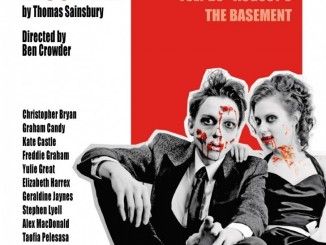
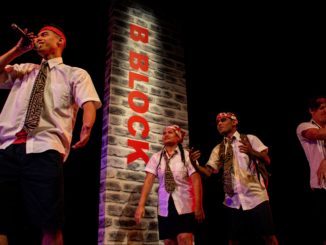
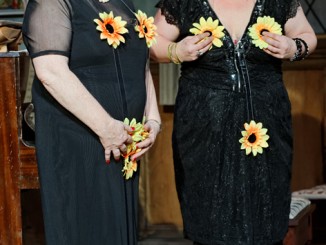
Leave a Reply